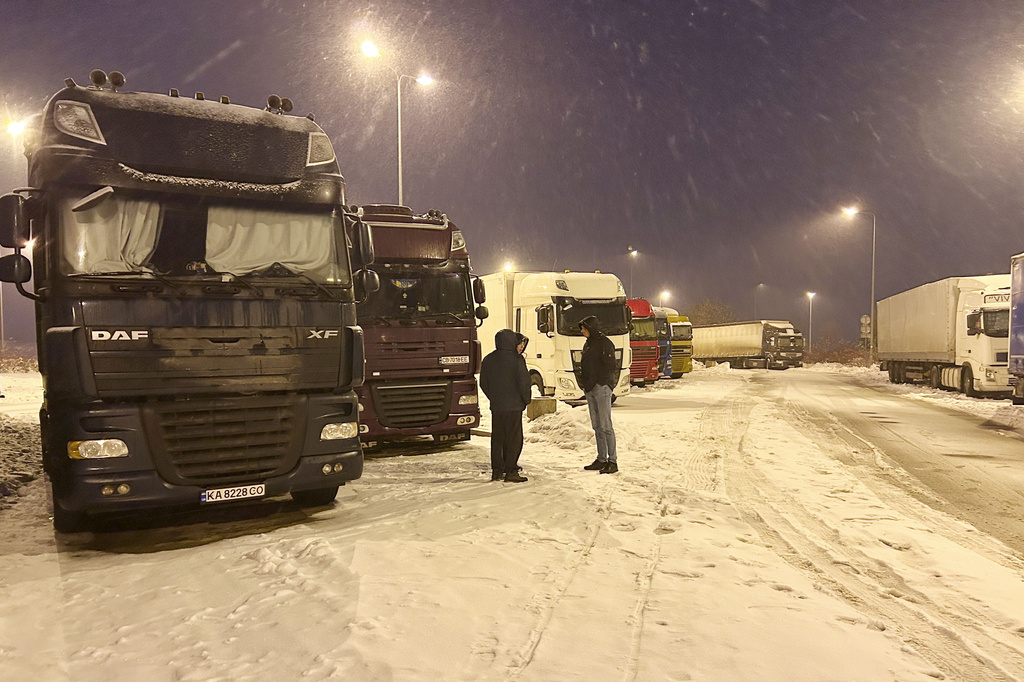Hungarian truckers are planning on joining the spreading trucker protest movement against Ukraine, with Polish truckers — and to a lesser extent Slovak truckers — already blocking Ukrainian truckers from entering European territory.
From Monday, Hungarian truckers are also forming a blockade at the Záhony border crossing with Ukraine to pressure the European Commission and the Hungarian government to review a recent EU decision. In September, the EU Commission decided to lift the war-related ban on Ukrainian goods until next summer, allowing, for example, Ukrainian grain to be sold in the EU.
[pp id=100365]
Three member states — Poland, Slovakia and Hungary — have adopted regulations to comply with part of the EU measure, but all three countries are still being sued by the Ukrainian state. The three countries are also in breach of EU single market rules due to their current stance.
The trucker protests, which start on Monday and run until the last day of December, would only slow down truck traffic — not cars and buses. The blockade would allow two trucks per hour in each direction to cross the Záhony-Csap border crossing, with a few exceptions: trucks carrying live animals; fresh milk; dairy products; fresh and frozen meat; perishable foodstuffs; disaster and damage prevention aid; and technical, accident and rescue cargo and humanitarian aid.
With the start of the war, Russia blockaded Ukraine’s Black Sea routes, so much more expensive land transport meant that many goods from Ukraine, mainly cereals, were given free trade status with the EU and ended up in neighboring EU countries instead of their original destinations in Africa and the Middle East.
The grain agreement has since been terminated by Russia, and no agreement has been reached to restore it. Cheap Ukrainian grain has put local producers at a disadvantage, so from April to September, the EU agreed with five EU countries neighboring Ukraine — including Poland, Romania, Bulgaria and Slovakia — that Ukrainian grain could only pass through their territory and could not be sold or stored.
[pp id=101387]
According to the secretary general of the Association of Hungarian Road Haulage Contractors, the entry of Ukrainian trucks into the domestic market has put hundreds of businesses at risk, with there being 30 percent more Ukrainian trucks on Hungarian roads than previously.
Ukrainian transporters come from a different economic and legal environment, have different costs and a significant price advantage, and are not subject to EU rules. The flood of cheaper Ukrainian products onto the EU market is pushing down prices at the expense of domestic farmers — a point also made by the Polish and Slovak protests.





